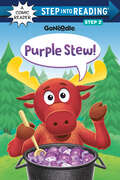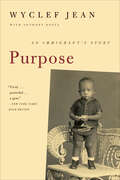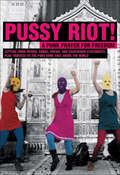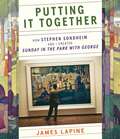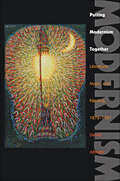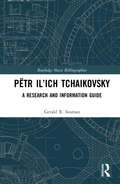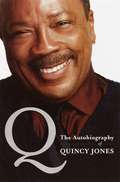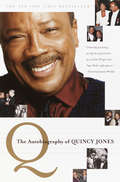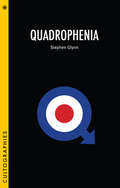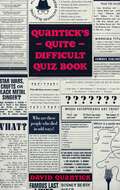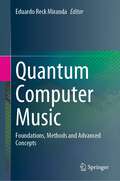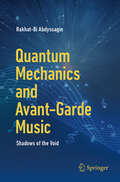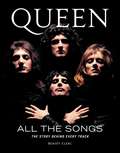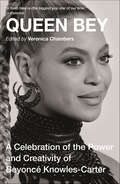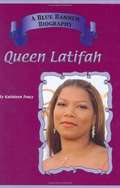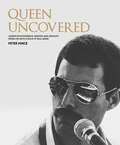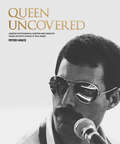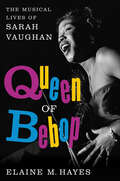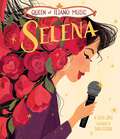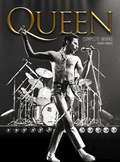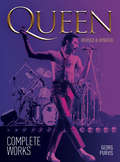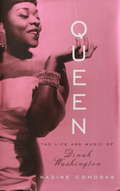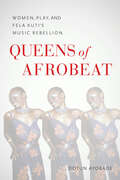- Table View
- List View
Punks in Peoria: Making a Scene in the American Heartland (Music in American Life #1)
by Jonathan Wright Dawson BarrettPunk rock culture in a preeminently average town Synonymous with American mediocrity, Peoria was fertile ground for the boredom- and anger-fueled fury of punk rock. Jonathan Wright and Dawson Barrett explore the do-it-yourself scene built by Peoria punks, performers, and scenesters in the 1980s and 1990s. From fanzines to indie record shops to renting the VFW hall for an all-ages show, Peoria's punk culture reflected the movement elsewhere, but the city's conservatism and industrial decline offered a richer-than-usual target environment for rebellion. Eyewitness accounts take readers into hangouts and long-lost venues, while interviews with the people who were there trace the ever-changing scene and varied fortunes of local legends like Caustic Defiance, Dollface, and Planes Mistaken for Stars. What emerges is a sympathetic portrait of a youth culture in search of entertainment but just as hungry for community—the shared sense of otherness that, even for one night only, could unite outsiders and discontents under the banner of music. A raucous look at a small-city underground, Punks in Peoria takes readers off the beaten track to reveal the punk rock life as lived in Anytown, U.S.A.
Purple Stew! (Step into Reading)
by Random HouseDance, laugh, and learn to read with this GoNoodle Step 2 Comic Reader which embraces silly ideas and ingredients!Moose Fabio and his friends love to use their imagination when they cook up a bowl of purple stew—what will you add to the pot? Introduce readers to some of their favorite GoNoodle characters in this new comic reader based on &‘Purple Stew&’, the popular video and song! Comic Readers are told almost entirely in action-packed dialogue! Simple, graphic, paneled layouts introduce emergent readers to the joy of comics.Step 2 Comic Readers use basic vocabulary and short sentences to tell simple stories; for children who recognize familiar words and can sound out new words with help.
Purpose: An Immigrant's Story
by Anthony Bozza Wyclef JeanPurpose is Wyclef Jean’s powerful story of a life rooted in struggle, soul-searching, art, and survival.In his own voice the multi-platinum musician and producer shares everything, from his childhood in Haiti to his rise to the top of the American music scene. For the first time ever, Wyclef reveals the behind-the-scenes story of the Fugees, including his partnership with Lauryn Hill and Pras Michel, the details of their award-winning album The Score, and the solo career that followed.For fans of early Wyclef efforts like The Carnival or later albums like From the Hut, To the Projects, To the Mansion—and for fans of books like Jay-Z’s Decoded or Russell Simmons’ Super Rich—Wyclef’s Purpose is an inspiring, one-of-a-kind look at one of the world’s most talented artists.
Pussy Riot!: A Punk Prayer for Freedom
by Pussy RiotLetters from prison, songs, poems, and courtroom statements, plus tributes to the Russian punk band that shook the world.On February 21, 2012, five members of a Russian feminist punk collective Pussy Riot staged a performance in the Cathedral of Christ the Savior in Moscow. Dressed in brightly colored tights and balaclavas, they performed their “Punk Prayer” asking the Virgin Mary to drive out Russian president Vladimir Putin from the church. After just forty seconds, they were chased out by security. Once a retooled video of the events circulated on YouTube (edited to seem much longer than the actual performance), the state was riled into action. Three members of the collective, Maria Alyokhina, Nadezhda Tolokonnikova, and Yekaterina Samutsevich, known as Masha, Nadya, and Katya, were arrested and charged with felony hooliganism motivated by religious hatred, an offense carrying a sentence of up to seven years.As their trial unfolded, these young women became global feminist icons, garnering the attention and support of activists and artists around the world, including Madonna, Paul McCartney, and Sting, as well as contributors to this book: Yoko Ono, Johanna Fateman, Karen Finley, Justin Vivian Bond, Eileen Myles, and JD Samson. The Internet exploded with petitions, music videos, and calls to action, and as the guilty verdict was anticipated, Pussy Riot responded with articulate, unwavering courtroom statements, calling for freedom of expression, an end to economic and gender oppression, and a separation of church and state. They were sentenced to two years in prison, and inspired a global movement. Collected here are the words that roused the world.
Putting It Together: How Stephen Sondheim And I Created Sunday In The Park With George
by James LapinePutting It Together chronicles the two-year odyssey of creating the iconic Broadway musical Sunday in the Park with George. In 1982, James Lapine, at the beginning of his career as a playwright and director, met Stephen Sondheim, nineteen years his senior and already a legendary Broadway composer and lyricist. Shortly thereafter, the two decided to write a musical inspired by Georges Seurat’s nineteenth-century painting A Sunday Afternoon on the Island of La Grande Jatte. Through conversations between Lapine and Sondheim, as well as most of the production team, and with a treasure trove of personal photographs, sketches, script notes, and sheet music, the two Broadway icons lift the curtain on their beloved musical. Putting It Together is a deeply personal remembrance of their collaboration and friendship and the highs and lows of that journey, one that resulted in the beloved Pulitzer Prize-winning classic.
Putting Modernism Together: Literature, Music, and Painting, 1872–1927 (Hopkins Studies in Modernism)
by Daniel AlbrightA powerful introduction to modernism and the creative arts it inspired.How do you rationally connect the diverse literature, music, and painting of an age? Throughout the modernist era—which began roughly in 1872 with the Franco-Prussian War, climaxed with the Great War, and ended with a third catastrophe, the Great Depression—there was a special belligerence to this question. It was a cultural period that envisioned many different models of itself: to the Cubists, it looked like a vast jigsaw puzzle; to the Expressionists, it resembled a convulsive body; to the Dadaists, it brought to mind a heap of junk following an explosion. In Putting Modernism Together, Daniel Albright searches for the center of the modernist movement by assessing these various artistic models, exploring how they generated a stunning range of creative work that was nonetheless wound together aesthetically, and sorting out the cultural assumptions that made each philosophical system attractive. Emerging from Albright's lectures for a popular Harvard University course of the same name, the book investigates different methodologies for comparing the evolution and congruence of artistic movements by studying simultaneous developments that occurred during particularly key modernist years. What does it mean, Albright asks, that Joseph Conrad's Heart of Darkness, published in 1899, appeared at the same time as Claude Debussy's Nocturnes—beyond the fact that the word "Impressionist" has been used to describe each work? Why, in 1912, did the composer Arnold Schoenberg and the painter Vassily Kandinsky feel such striking artistic kinship? And how can we make sense of a movement, fragmented by isms, that looked for value in all sorts of under- or ill-valued places, including evil (Baudelaire), dung heaps (Chekhov), noise (Russolo), obscenity (Lawrence), and triviality (Satie)? Throughout Putting Modernism Together, Albright argues that human culture can best be understood as a growth-pattern or ramifying of artistic, intellectual, and political action. Going beyond merely explaining how the artists in these genres achieved their peculiar effects, he presents challenging new analyses of telling craft details which help students and scholars come to know more fully this bold age of aesthetic extremism.
Pëtr Il’ich Tchaikovsky: A Research and Information Guide (Routledge Music Bibliographies)
by Gerald R. SeamanPëtr Il’ich Tchaikovsky: A Research and Information Guide is an annotated bibliography of substantial, relevant published resources relating to the Russian composer. Generally regarded as one of the most remarkable composers of the second half of the nineteenth century, Tchaikovsky is unique in that he was the first outstanding Russian composer to receive a professional musical education, being one of the first students to graduate from the newly opened St. Petersburg Conservatory. Composer of six symphonies, concertos, orchestral works, eight major operas, three ballets, and many chamber, keyboard and vocal works, he also composed important sacred music, which is currently being reassessed by contemporary Russian musicologists who are able to examine materials previously restricted or inaccessible during the Soviet period. Like his colleagues in St. Petersburg, Tchaikovsky was deeply interested in Russian folk song, which plays an important part in his works. This volume evaluates the major studies written about the composer, incorporating new information that has appeared in literary publications, articles and reviews.
Q: The Autobiography of Quincy Jones
by Quincy JonesQuincy Jones has won multiple grammy awards. He has been acknowledged as a masterful jazz, rock, and funk musician, has created some of the most memorable film scores of the pop era, and has sat at the production controls for numerous landmark albums, including Michael Jackson's Thriller, the biggest-selling long-player of all time.
Q: The Autobiography of Quincy Jones
by Quincy JonesThe first entry in a multivolume set that will be essential reading for aspiring producers and artists everywhere, Q on Producing presents the master's approach to making music.
Quadrophenia (Cultographies)
by Stephen Glynn1964: Mods clash with Rockers in Brighton, creating a moral panic. 1973: ex-Mod band The Who release Quadrophenia, a concept album following young Mod Jimmy Cooper to the Brighton riots and beyond. 1979: Franc Roddam directs Quadrophenia, a film based on Pete Townshend's album narrative; its cult status is immediate. 2013: almost fifty years on from Brighton, this first academic study explores the lasting appeal of 'England's Rebel Without a Cause'. Investigating academic, music, press, and fan-based responses, Glynn argues that the 'Modyssey' enacted in Quadrophenia intrigues because it opens a hermetic subculture to its social-realist context; it enriches because it is a cult film that dares to explore the dangers in being part of a cult; it endures because of its 'emotional honesty', showing Jimmy as failing, with family, job, girl, and group; it excites because we all know that, at some point in our lives, 'I was there!'
Quantick's Quite Difficult Quiz Book
by David Quantick'Best quiz book ever'HARRY HILL'Quantick is the Captain Beefheart of quizzing'MARK BILLINGHAM'The antidote to every deathly dull pub quiz you've ever been to. This is how a quiz book should be written - where having fun is the most important outcome'GARY WIGGLESWORTH, author of The Book Lover's Quiz BookDistinctive, unusual, difficult, but spectacularly entertaining, this quiz book is to other pub quizzes what Trivial Pursuit was to Ludo, what TheHitch-Hiker's Guide to the Galaxy is like to the Rhyl phone directory, and what the Rolls-Royce Silver Ghost is like compared to a kid's scooter. Loads better.David Quantick works regularly with Armando Iannucci, including on the new HBO series, Avenue 5. He won an Emmy as part of the writing team on Veep, a BAFTA for Harry Hill's TV Burp and a Writers' Guild Award for The Thick of It. For over fifteen years, David has also hosted his own very popular quizzes at festivals, events, pubs, clubs, cinemas and in tents: the quizzes range is broad and the questions are tricky. They're not about statistics, there's no sport, the picture rounds are conceptual, and there's sometimes a round called 'Martin Amis Character or Blur Song'. Each quiz is funny and entertaining even if you don't know the answers. The quizzes are informative and opinionated. In some ways, they're like stand-up with questions. This is a book based on David's excellent live quizzes, described by many people as 'quite difficult'.But they are quizzes. Quite difficult quizzes that tax the brain and make it go in directions it didn't know it could. That's not to say the questions are fiendishly scientific and packed with questions about dates and the periodic table. They're about books and music, movies and actors, strange events and interesting quotes. You don't leave a Quantick quiz knowing how many times Spurs have won the League, but you may know how many Shirleys have sung a Bond theme or how George V made the front page of The Times.The effectiveness of David's quizzes is down to their unusual variety and almost stream-of-consciousness leaps and bounds of factual imagination. There's not even much point in cheating, because the answers often require mental agility as well as just knowing where Calais is (it's in France, but it wasn't always, even when it was).David's quiz book includes twenty-five main quizzes, four Christmas quizzes and four specialist quizzes, so thirty-three quizzes in total. Entertaining in its own right, this is also a conceptual yet very practical guide to staging excellent quizzes of your own.
Quantick's Quite Difficult Quiz Book
by David Quantick'Best quiz book ever'HARRY HILL'Quantick is the Captain Beefheart of quizzing'MARK BILLINGHAM'The antidote to every deathly dull pub quiz you've ever been to. This is how a quiz book should be written - where having fun is the most important outcome'GARY WIGGLESWORTH, author of The Book Lover's Quiz BookDistinctive, unusual, difficult, but spectacularly entertaining, this quiz book is to other pub quizzes what Trivial Pursuit was to Ludo, what The Hitch-Hiker's Guide to the Galaxy is like to the Rhyl phone directory, and what the Rolls-Royce Silver Ghost is like compared to a kid's scooter. Loads better.David Quantick works regularly with Armando Iannucci, including on the new HBO series, Avenue 5. He won an Emmy as part of the writing team on Veep, a BAFTA for Harry Hill's TV Burp and a Writers' Guild Award for The Thick of It. For over fifteen years, David has also hosted his own very popular quizzes at festivals, events, pubs, clubs, cinemas and in tents: the quizzes range is broad and the questions are tricky. They're not about statistics, there's no sport, the picture rounds are conceptual, and there's sometimes a round called 'Martin Amis Character or Blur Song'. Each quiz is funny and entertaining even if you don't know the answers. The quizzes are informative and opinionated. In some ways, they're like stand-up with questions. This is a book based on David's excellent live quizzes, described by many people as 'quite difficult'.But they are quizzes. Quite difficult quizzes that tax the brain and make it go in directions it didn't know it could. That's not to say the questions are fiendishly scientific and packed with questions about dates and the periodic table. They're about books and music, movies and actors, strange events and interesting quotes. You don't leave a Quantick quiz knowing how many times Spurs have won the League, but you may know how many Shirleys have sung a Bond theme or how George V made the front page of The Times.The effectiveness of David's quizzes is down to their unusual variety and almost stream-of-consciousness leaps and bounds of factual imagination. There's not even much point in cheating, because the answers often require mental agility as well as just knowing where Calais is (it's in France, but it wasn't always, even when it was).David's quiz book includes twenty-five main quizzes, four Christmas quizzes and four specialist quizzes, so thirty-three quizzes in total. Entertaining in its own right, this is also a conceptual yet very practical guide to staging excellent quizzes of your own.
Quantum Computer Music: Foundations, Methods and Advanced Concepts
by Eduardo Reck MirandaThis book explores music with respect to quantum computing, a nascent technology that is advancing rapidly. There is a long history of research into using computers for music since the 1950s. Nowadays, computers are essential for the music economy. Therefore, it is very likely that quantum computers will impact the music industry in the time to come. Consequently, a new area of research and development is emerging: Quantum Computer Music. This unprecedented book presents the new field of Quantum Computer Music. It introduces the fundamentals of quantum computing for musicians and the latest developments by pioneering practitioners.
Quantum Mechanics and Avant-Garde Music: Shadows of the Void
by Rakhat-Bi Abdyssagin"Fascinating details and anecdotes accompany this engaging account of the emergence of dramatic new ideas and forms in music over the centuries..." David Politzer, winner of the 2004 Nobel Prize in Physics. "A thought-provoking, stimulating, and highly original exploration of deep metaphorical links between music and physics...Highly recommended." Prof. Ian Stewart FRS, author, What’s the Use? "An astonishing book!" Tristan Murail, composer and co-creator of the "spectral" technique. Have you ever wondered about the connection between Pauli's exclusion principle and Schoenberg's dodecaphony? Or the symphonic echoes of Heisenberg's uncertainty principle in the compositions of Stockhausen and Cage? This book not only poses these questions but skillfully uncovers the artistic answers, exploring interdisciplinary connections that bridge the gap between modern physics and contemporary music. Dive into philosophical discourses on time, witness the metamorphosis of Boolean algebra, bits, and qubits into musical notation, and discover the limitations of the 12-tone scale mirrored in the speed of light. The author's unique methodology offers a fresh perspective, linking the language of mathematics and physics to the creation of musical scores. This book transcends the boundaries of physics and music, revealing the inevitable fusion of modern physics and avant-garde music in the twentieth century. Through meticulous research, the author showcases the profound impact of revolutionary ideas such as quantum physics and relativity on all aspects of life and demonstrates that modern physics and contemporary music were born not out of chance—their emergence and development were inevitable events. Delving into the historical accounts, he explores the musical endeavors of great physicists like Max Planck and Albert Einstein, unraveling the quantum entanglement of physics mirrored in the extended techniques of contemporary music and unveiling the musical universe of Werner Heisenberg through captivating personal encounters with his descendants. Crafted for general readers and seasoned experts alike, the book maintains clarity and style, ensuring accessibility without sacrificing depth. This pioneering exploration not only draws connections between modern physics and music but also serves as a unique bridge for scientists, musicians, and the curious general audience. Requiring no formal background in physics or music, the book is a compelling read for those intrigued by the uncharted territories where science and art converge, offering a concise and illuminating journey into the shadows of the void.
Queen All the Songs: The Story Behind Every Track (All The Songs)
by Benoît ClercFilled with fascinating photographs (some rarely seen), and juicy behind-the-scenes details, Queen All the Songs details the unique recording history of the mega-bestselling and hugely influential rock band, album by album and track by track. <P><P>A lovingly thorough dissection of every album and every song ever released by the beloved rock group, Queen All the Songs follows Freddie, Brian, Roger, and John from their self-titled debut in 1973 through the untimely passing of Freddie, all the way up to their latest releases and the Oscar-winning film, Bohemian Rhapsody. The writing and recording process of each and every track is dissected, discussed, and analyzed by author Benoît Clerc, and page after page features fascinating and sometimes rarely seen images of the band. Queen All the Songs delves deep into the history and origins of the band and their music. This one-of-a-kind book draws upon decades of research and recounts the circumstances that led to the composition of every song, as well as the recording process, and the instruments used. Featuring hundreds of photographs, including rare black-and-white publicity stills, images of instruments used by the band, and engaging shots of the musicians in-studio, Queen All the Songs is the must-have book for any true fan of classic rock.
Queen Bey: A Celebration of the Power and Creativity of Beyoncé Knowles-Carter
by Veronica ChambersFEATURED IN: The New York Times Book Review ("New and Noteworthy") •Essence • Newsweek•People • Bustle • PopSugar • Refinery 29 • HelloGiggles' • PureWow • Newsday• AMNewYorkThe Ultimate Beyoncé Collectible"Beyoncé fans will eat it up." —People"You don't need to be in the Beyhive to appreciate Queen Bey...Voices including culture critic Luvvie Ajayi and actress and producer Lena Waithe give us a fresh take on Beyoncé, who's arguably the biggest pop star of our time." —EssenceBeyoncé. Her name conjures more than music, it has come to be synonymous with beauty, glamour, power, creativity, love, and romance. Her performances are legendary, her album releases events. She is not even forty but she has already rewritten the Beyoncé playbook more than half a dozen times. She is consistently provocative, political and surprising. As a solo artist, she has sold more than 100 million records. She has won 22 Grammys and is the most-nominated woman artist in the history of Grammy awards. Her 2018 performance at Coachella wowed the world. The New York Times wrote: "There's not likely to be a more meaningful, absorbing, forceful and radical performance by an American musician this year or any year soon." Artist, business woman, mother, daughter, sister, wife, black feminist, Queen Bey is endlessly fascinating. Queen Bey features a diverse range of voices, from star academics to outspoken cultural critics to Hollywood and music stars. Essays include:"What Might a Black Girl Be in This World," an introduction by Veronica Chambers"Beychella is Proof That Beyoncé is the Greatest Performer Alive. I’m Not Arguing." by Luvvie Ajayi"On the Journey Together," by Lena Waithe"What Beyoncé Means to Everyone," by Meredith Broussard with visualizations by Andrew Harvard and Juan Carlos Mora"Jay-Z's Apology to Beyoncé Isn't Just Celebrity Gossip — It's a Political Act" by Brittney Cooper"All Her Single Ladies" by Kid Fury "The Elevator" by Ylonda Gault "The Art of Being Beyoncé" by Maria Brito"Getting, Giving and Leaving" by Melissa Harris Perry and Mankaprr Conteh"Beyoncé the Brave" by Reshma Saujani"Living into the Lemonade: Redefining Black Women’s Spirituality in the Age of Beyoncé" by Candice Benbow"Beyoncé’s Radical Ways" by Carmen Perez"Finding la Reina in Queen Bey" by Isabel Gonzalez Whitaker"Beyoncé, Influencer" by Elodie Maillet Storm"The King of Pop and the Queen of Everything" by Michael Eric Dyson"Style So Sacred" by Edward Enninful"The Beauty of Beyoncé" by Fatima Robinson "Because Beyoncé." by Ebro Darden"King Bey" by Treva B. Lindsey"Meridonial: Beyoncé’s Southern Roots and References" by Robin M. Boylorn"B & V: A Love Letter" by Caroline Clarke
Queen Latifah
by Kathleen TracyQueen Latifah was a tomboy in her New Jersey city. But now, she's a rapper, (her CD's have sold millions), she is an actress, (She was nominated for an academy award, the first hip-hop artist to be nominated), and so much more. this children's biography highlights her career moves, from rap to acting, and what she hopes to accomplish in the future.
Queen Uncovered: Unseen Photographs, Rarities and Insights From Life With A Rock 'n' Roll Band
by Peter HincePeter Hince spent 13 years as head roadie for Queen. His collection of photographs and ephemera from the band&’s personal and public moments will finally see the light of day for the first time. It&’s a unique photographic record of one of the most celebrated rock bands of all time. From concerts in Munich to Japan, Hince follows Queen from studio to street to stage. Facsimiles of handwritten notes from recording sessions, photos of the band in the studio, images of cassettes given to Hince to debut at clubs, Freddie Mercury with and without a mustache . . . the list goes on. Along with many candid moments are great photos of the various items collected from more than a decade of tours: backstage passes, matchbooks, set lists, and more.
Queen Uncovered: Unseen photographs, rarities and insights from life with a rock 'n' roll band
by Peter HinceFor 13 years, Peter Hince lived the rock 'n' roll dream. As head roadie for Queen he had a front row seat and backstage pass to some of the greatest moments in music.Now, he is opening up his incredible archive and sharing hundreds of photographs and mementoes – many never seen before – as well as stories and memories from life inside rock 'n' roll history.Queen Uncovered is packed with images and ephemera from this truly unique collection, covering life on the road and in the studio, backstage and on-stage, relaxing at parties, filming iconic music videos and much more besides.
Queen of Bebop: The Musical Lives of Sarah Vaughan
by Elaine M. HayesPublishers Weekly Best Book of 2017Washington Post Best Book of 2017Amazon Editors' Top 100 Pick of the YearAmazon Best Humor and Entertainment Pick of the YearBooklist Top Ten Arts BookQueen of Bebop brilliantly chronicles the life of jazz singer Sarah Vaughan, one of the most influential and innovative musicians of the twentieth century and a pioneer of women’s and civil rightsSarah Vaughan, a pivotal figure in the formation of bebop, influenced a broad array of singers who followed in her wake, yet the breadth and depth of her impact—not just as an artist, but also as an African-American woman—remain overlooked. Drawing from a wealth of sources as well as on exclusive interviews with Vaughan’s friends and former colleagues, Queen of Bebop unravels the many myths and misunderstandings that have surrounded Vaughan while offering insights into this notoriously private woman, her creative process, and, ultimately, her genius. Hayes deftly traces the influence that Vaughan’s singing had on the perception and appreciation of vocalists—not to mention women—in jazz. She reveals how, in the late 1940s and early 1950s, Vaughan helped desegregate American airwaves, opening doors for future African-American artists seeking mainstream success, while also setting the stage for the civil rights activism of the 1960s and 1970s. She follows Vaughan from her hometown of Newark, New Jersey, and her first performances at the Apollo, to the Waldorf Astoria and on to the world stage, breathing life into a thrilling time in American music nearly lost to us today.Equal parts biography, criticism, and good old-fashioned American success story, Queen of Bebop is the definitive biography of a hugely influential artist. This absorbing and sensitive treatment of a singular personality updates and corrects the historical record on Vaughan and elevates her status as a jazz great.
Queen of Tejano Music: Selena
by Silvia LópezThis moving and impassioned picture book about the iconic Queen of Tejano music, Selena Quintanilla, that will embolden young readers to find their passion and make the impossible, possible!Selena Quintanilla's music career began at the age of nine when she started singing in her family's band. She went from using a hairbrush as a microphone to traveling from town to town to play gigs. But Selena faced a challenge: People said that she would never make it in Tejano music, which was dominated by male performers. Selena was determined to prove them wrong.Born and raised in Texas, Selena didn't know how to speak Spanish, but with the help of her dad, she learned to sing it. With songs written and composed by her older brother and the fun dance steps Selena created, her band, Selena Y Los Dinos, rose to stardom! A true trailblazer, her success in Tejano music and her crossover into mainstream American music opened the door for other Latinx entertainers, and she became an inspiration for Latina girls everywhere.
Queen: Complete Works
by Georg PurvisMixing and clashing an outrageously eclectic set of influences-the close harmonies of the Beatles, the guitar pyrotechnics of Jimi Hendrix, the heavy sound of Led Zeppelin, and the glamour of David Bowie-Queen found a winning formula by channeling this strange cocktail through its charismatic frontman, Freddie Mercury. More than a decade after Mercury's death, Queen's fan base continues to grow. This meticulous, session-by-session, album-by-album, tour-by-tour chronicle of the band is the book that Queen fans have been waiting for.
Queen: Complete Works (revised and updated)
by Georg PurvisClashing together outrageous musical influences, and extravagant visual imagery, Queen's place in history as the greatest glam band of them all is rock solid.Their fan base continues to grow, over 25 years on from the death of Freddie Mercury, Queen's flamboyant, unforgettable front man. Georg Purvis's meticulous, session-by-session, song-by-song, album-by-album, tour-by-tour record of the band's progress is the complete reference source that Queen fans have been waiting for. If you love the Champions of Rock, it's all here:The Band - detailed insights into Freddie Mercury, Brian May, Roger Taylor and John Deacon including bands the members formed outside of Queen and solo endeavours The Albums - detailed production history and analysis of every album, including solo releasesThe Sessions - In depth coverage from the early days via A Night at The Opera all the way to Made in HeavenThe Songs - hundreds of individual entries on all the famous recordings, as well as obscure, unreleased raritiesThe Tours - set-lists and histories of every Queen and Queen-related live show including Queen + Adam LambertThe Videos - a complete guide to Queen's groundbreaking video workThe Movies - Flash Gordon, Highlander and 2018's Bohemian Rhapsody biopic Plus - the reunion shows with Paul Rodgers, Adam Lambert, the radio sessions, the costumes, the parties and much, much more...
Queen: The Life and Music of Dinah Washington
by Nadine CohodasIn this biography of jazz singer Dinah Washington (1924-1963), Cohodas traces her life as a child in Tuscaloosa, Alabama, the beginnings of her career when she sang with Lionel Hampton's band, recordings and songs, and her performances with her trio, as a soloist, and other groups. A discography is provided. Cohodas is the author of other books on music and politics. Annotation ©2006 Book News, Inc. , Portland, OR (booknews. com)
Queens of Afrobeat: Women, Play, and Fela Kuti's Music Rebellion
by Dotun AyobadeIn Queens of Afrobeat, the women of Afrobeat music—a unique blend of jazz, soul, highlife, and West African rhythms—are finally given the recognition they deserve. This extensive study takes a multifaceted view of the storied lives of the women behind Fela Kuti's activist music.Dotun Ayobade's wide-ranging research pulls from interviews with surviving queens, ethnographic narratives, the exploration of newspaper archives, and close readings of album covers, photographs, and promotional materials to help us see and understand the women who surrounded Fela Kuti on stage and in everyday life. Not only were these artists crucial performers and backup singers for Kuti's most important compositions, they also played key roles in his activism and campaigns of social protest against the Nigerian government in the 1970s. Drawing on previously untapped material, Queens of Afrobeat weaves together an intricate narrative of women's participation in popular music. The stories of these remarkable women transform and uniquely personalize our understanding of the politics and performance of one of the major modern musical traditions in Africa.

